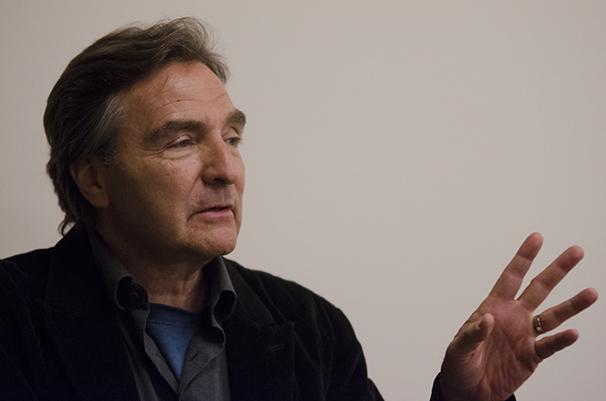
With the Syrian crisis in its fourth year, students and professors gathered at the Kimmel Center for University Life on April 8 to discuss the implications of the conflict.
Zachary Lockman, professor of Middle Eastern and Islamic studies and history, was critical of the international response to the crisis during his presentation at the event.
“[The Syrian Civil War] is a huge humanitarian disaster and one which the international community has not been effective in facing,” Lockman said.
Lockman discussed the background of the Syrian conflict and the history of the modern Syrian state. After his presentation, he answered questions from the audience and discussed the possible outcomes of the war.
The United States could probably not play a large role in ending the crisis, Lockman said.
“[The United States] can give more aid to the rebels, but that’s only going to raise the level of bloodshed, I suspect, and the United States is not about to send in the marines, and that would be a disaster anyway,” Lockman said. “There doesn’t seem to be a military solution here on any side it seems to me that the first priority is to find a way to address this humanitarian catastrophe.”
The event, which was co-sponsored by the Muslim Student Associations of NYU and the Polytechnic School of Engineering, was part of the annual Shuruq theme month, which aims to educate students about Muslim life, culture and politics.
CAS junior and volunteer event coordinator Zohaib Anwar said this event was meant to increase awareness of the ongoing crisis in Syria and the humanitarian issues it poses.
“We want to have an awareness of the world around us and we want to know what’s going on,” Anwar said. “In general, Islam is about helping people. We have to keep track of everything that’s going wrong in the world and see what we can do about it.”
Hunter College senior Iram Ali, who attended the event, agreed about the importance of the issue and said that it merits discussion, even for non-Muslims.
“I don’t see the Syrian issue as necessarily a Muslim one,” Ali said. “It’s a humanitarian issue and people should know about it because of the millions of people being displaced or killed.”
Later this month, the Shuruq group plans to have a number of other events, including the Muslim-Christian dialogue today and the Muslim Palette food tasting on April 14.
A version of this article appeared in the Wednesday, April 9 print edition. John Ambrosio is a staff writer. Email him at [email protected].























































































































































Arafat • Apr 9, 2014 at 9:48 am
I’ve got a novel idea. Let’s do nothing.
Let the Muslims deal with their own problems for a change. Let’s let countries like Saudi Arabia, Qatar, Kuwait with their endless ocean of oil money and Western-bought armaments figure it out instead. Surely they – being practitioners of the religion of compassion and peace – will step right up to the plate in our stead.
OK, you caught me there. You knew I was kidding! You knew what I know which
is that there is no answer to these Islamic cesspools. Whatever we do will be
discredited and if we do nothing then Syria will become just another country in
the endless line of Hell on Earth Islamic countries.
We cannot save Muslims from themselves. It is like trying to save an
alcoholic from himself. Until Muslims are ready to abandon their religion – a religion that emphasizes aggression and violence and sadism – anything we do will simply be a band-aid on a gaping wound.
And let there be no doubt about it this IS a Muslim problem. Sunni v Shiite v Kurd and all against the Christians.
Let them go through their DTs on their own. Only then will they be ready for our friendship and help, and only then will we find a way forward together as friends.